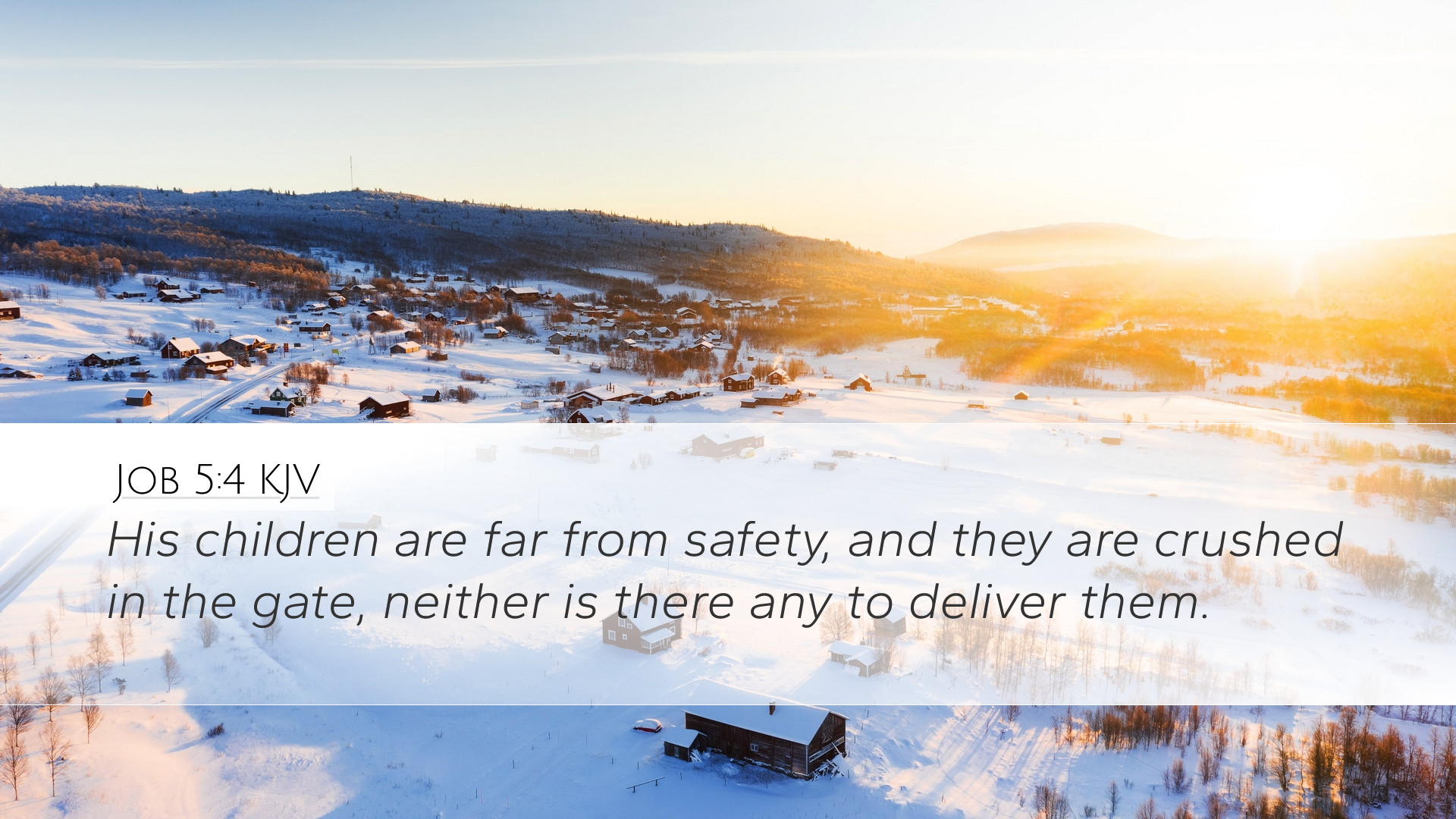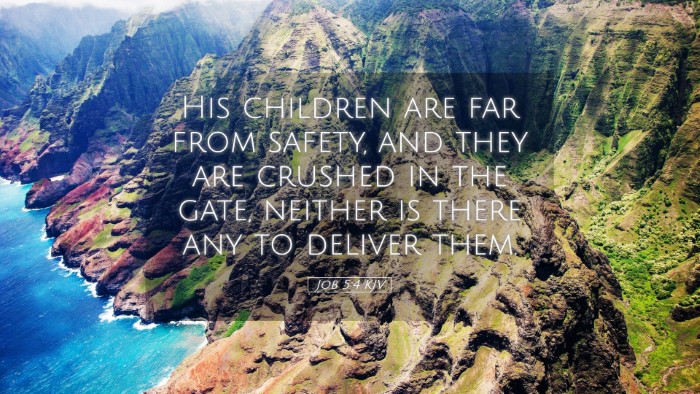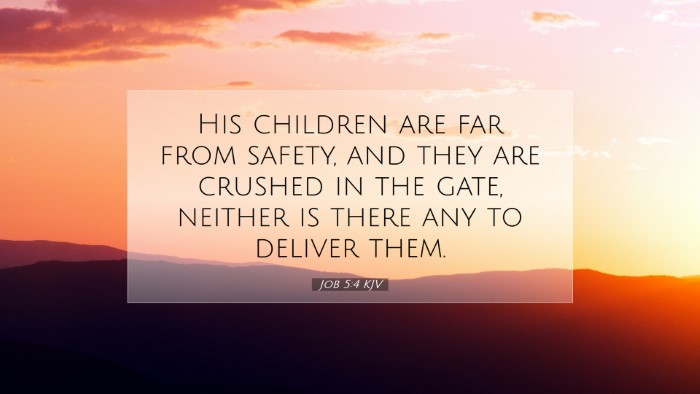Old Testament
Genesis Exodus Leviticus Numbers Deuteronomy Joshua Judges Ruth 1 Samuel 2 Samuel 1 Kings 2 Kings 1 Chronicles 2 Chronicles Ezra Nehemiah Esther Job Psalms Proverbs Ecclesiastes Song of Solomon Isaiah Jeremiah Lamentations Ezekiel Daniel Hosea Joel Amos Obadiah Jonah Micah Nahum Habakkuk Zephaniah Haggai Zechariah MalachiJob 5:4
Job 5:4 KJV
His children are far from safety, and they are crushed in the gate, neither is there any to deliver them.
Job 5:4 Bible Commentary
Commentary on Job 5:4
Job 5:4: "His children are far from safety, and they are crushed in the gate, and there is no deliverer."
Introduction
The Book of Job is a profound exploration of human suffering, divine justice, and the nature of faith. In Job 5:4, we encounter a poignant reflection on the state of Job’s situation through the lens of Eliphaz’s counsel. This commentary draws insights from esteemed public domain commentaries to elucidate the depth of this verse.
Contextual Analysis
At this juncture in the narrative, Job is plagued by great loss and suffering. Eliphaz, one of Job’s friends, speaks, offering his perspective on God’s ways and human suffering. The verse under consideration emphasizes the vulnerabilities faced not only by Job but also by his progeny, which carries implications about familial piety, divine justice, and the human condition.
The Exegetical Insights
Matthew Henry observes that Eliphaz is attempting to counsel Job by reflecting on God’s justice as a retributive force. Here, Eliphaz suggests that the fate of the children indicates a failure to secure divine protection—a theological assertion that implies a connection between sin and suffering. This stance leads to a profound examination of the nature of suffering: is it always a result of divine punishment?
The Safety of Children
Henry further elaborates that "His children are far from safety" signifies not merely physical danger but spiritual peril. The implication is that without a hedge of divine protection, children are at risk of both moral failure and temporal calamity. This speaks to the overarching theme of the importance of righteousness for one's family.
Crushed at the Gate
Eliphaz states, "they are crushed in the gate." The gate represents both a literal entrance to safety and a metaphor for societal protection and justice. Albert Barnes highlights that the gate is where judgments are made and vulnerabilities exposed. This phrase alludes to the societal chaos that ensues when justice falters—a theme relevant to both ancient and modern cultures alike.
No Deliverer
The concluding remark, "and there is no deliverer," is both haunting and profound. Adam Clarke posits that this silence of divine intervention portrays a dire situation devoid of hope. For Job and his children, the absence of a deliverer signifies not only physical abandonment in suffering but also spiritual desolation. This leads us to ponder the weight of collective suffering and the seeming absence of divine favor amidst tribulation.
Theological Considerations
In this verse, the questions of justice and divine benevolence arise powerfully. The implications of Eliphaz's claims suggest that suffering is a consequence of an unseen moral order. Such interpretations can lead to doctrinal pitfalls if one does not consider the holistic picture of Job’s narrative. Theologies that lean heavily on retributive justice must reconcile the innocent suffering of Job with their preconceptions.
Practical Applications
- Understanding Suffering: This verse challenges pastors and theologians to reflect on the nature of suffering—encouraging them to comfort those in distress while acknowledging the complexity of divine justice.
- Family Responsibility: The commentary invites families to recognize the spiritual and moral responsibilities they hold—not just for themselves but for future generations.
- Hope in Despair: Amidst the gravity of Eliphaz’s words, there is an underlying call for faith; finding hope in God’s sovereignty even when human enterprises fail.
Conclusion
Job 5:4 encapsulates a critical moment where the intersection of human suffering, divine justice, and familial responsibility becomes evident. The reflections provided through the insights of Matthew Henry, Albert Barnes, and Adam Clarke serve to deepen our understanding of this tumultuous dialogue in the Book of Job. As we meditate on this verse, we are reminded of the necessity of faith in God as an enduring strength against the harsh realities of life.


